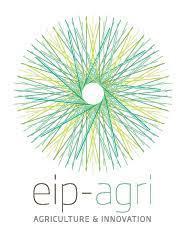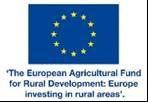
6 minute read
Duhallow Farming for Blue Dot Catchments EIP Summer Newsletter 2023
By Michael O'Connor - Ecologist with IRD Duhallow
What are ‘Blue Dot Catchments’?
Blue Dot River Catchments have a high-status objective under the Water Framework Directive. This means they are required to be at the highest water quality standard by 2027.
___
The Duhallow Farming for Blue Dot Catchments EIP is a five year, €1.47m EIP project operating in the River Allow sub-Catchment. The project works alongside farmers with land adjacent to the River Allow and its tributaries to protect and restore water quality to ‘highstatus’. High-status waterbodies are those achieving the highest standard of water quality under the Water Framework Directive. A hybrid approach, combining results-based payments for existing habitats that protect water quality, capital actions to mitigate against pollutant pathways, a biodiversity bonus payment, and knowledge transfer, is used by the project. At present there are 93 farmers actively participating in the project.
Project Actions
Results-based Payments
Project farms were surveyed from May to July by the project team for measures such as wet grassland, in-stream woody habitat, vegetated in-drain buffers, and riparian (riverside) scrub and woodland. Payments for such measures aim to financially reward farmers who are farming for blue dot catchments. These payments are ‘results-based’ meaning the payment is correlated to the quality of the measure.
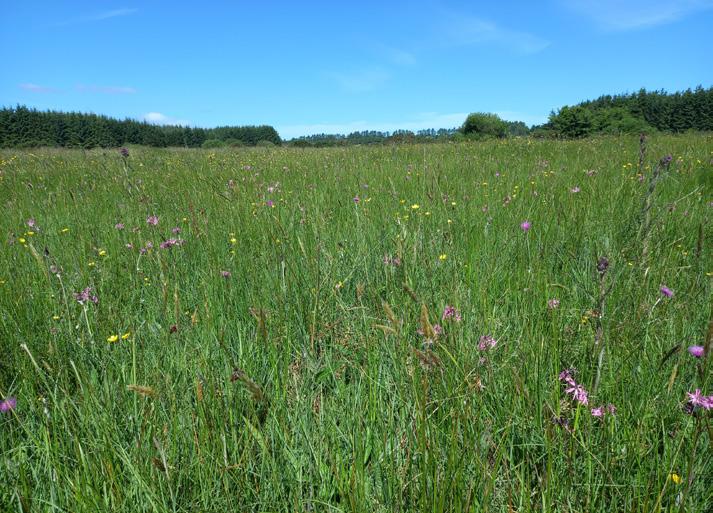
Additional Proposed Works
Additional proposed works are measures that are installed to mitigate against potential pollution on farms. These are proposed to the project team by the farmer or vice versa. In December 2022 over 6,500 trees were planted in strategic buffers, groves and hedgerows across the project catchment as well as across the River Owentaraglin (Araglen) catchment. Several additional proposed works have been installed on project farms in 2023 including farm road upgrades, water troughs, sustainable crossing points, and strategically located ponds.
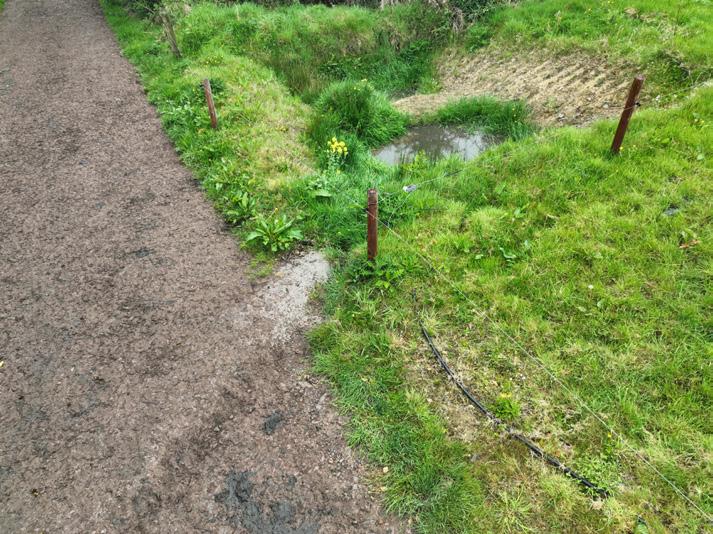
Knowledge Transfer
A knowledge transfer event was hosted by the project at the James O Keeffe Institute, Newmarket in July 2023. Speakers on the day were Donal Daly (former EPA), who spoke about locallyspecific catchment science, Paul O’Callaghan (LAWPRO), who spoke about the importance of the catchment area as a Blue Dot Catchment, and Denis Justice (IRD Duhallow) who spoke about IRD Duhallow’s Rural Community Health Project. These topics stimulated positive conversation and farmers enjoyed a BBQ after the event. Irish Heart Foundation provided a free clinic that many farmers availed of on the day. In total, 40 project farmers attended this knowledge transfer event.
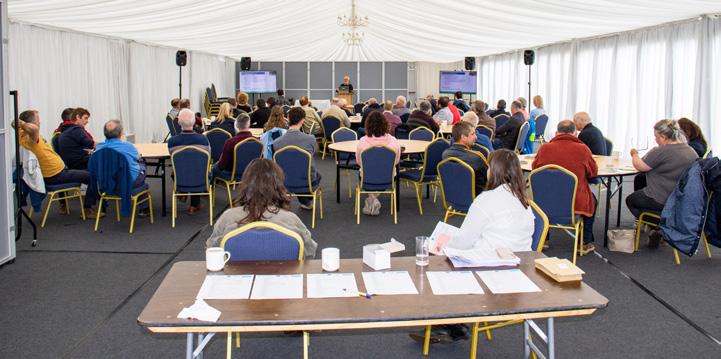
Donal Daly speaking with project farmers about agricultural pressures facing the local catchment and how they can be effectively tackled.
Research
Linda Heerey, post-doctoral researcher at Teagasc, has linked in with the project and a couple of project farmers to monitor in-drain ponds installed under the project. Linda’s research is part of the Teagasc SENSUS project. This investigates the effectiveness of in-drain measures to reduce the export of pollutants/contaminants (such as phosphorous and sediment) from agricultural land to freshwater.
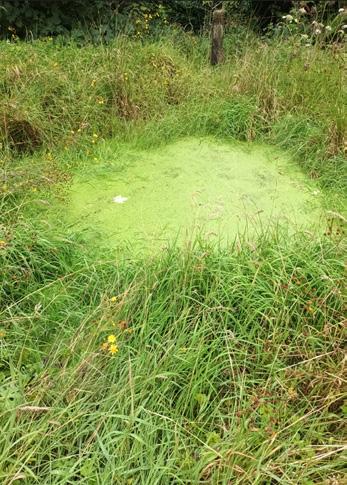
Aisling Natoff is conducting research on her MSc titled ‘Factors Influencing farmers acceptance of Best Management Practices for Water Quality Protection on High Status Objective Rivers’. This is part of her MSc in Sustainable Agriculture and Rural Development at UCD. Aisling completed two summer’s of work placement on the project (2021, 2022).
Rowan Lanning Rain is conducting her MSc research project on knowledge transfer as part of UCC’s MSC Co-operatives, Agri-food and Sustainable Development. Rowan is currently completing her work placement on the project.
Participating farmers have kindly offered their opinions and experiences to both Aisling and Rowan through a combination of questionnaires and focus groups.
Upscaling Potential
A key part of the Duhallow farming for Blue Dot Catchments EIP is sharing the lessons learned so that the results of the project can be upscaled beyond the catchment area. Through working closely with participating farmers and trialling innovative, farm-friendly solutions, the project has gathered a great deal of interest nationally and internationally.
In 2023 the project has delivered presentations and farm walks to environmental, agricultural and forestry agencies interested in replicating or learning from project measures. In particular, sediment ponds and farm roadway water bars have proved extremely popular.
The project team delivered a presentation to freshwater science researchers at the European Symposium for Freshwater Sciences (SEFS13) in Newcastle, UK, in June. Last year students from UCC and MTU courses visited project farms and 2023 university visits are currently being planned.
Booklet of Measures
A booklet of measures produced by the project team was launched in June by Minister for Agriculture, Food and the Marine Charlie McConalogue at the Charleville Park Hotel. The aim of this book is to highlight the importance of farmland habitats and measures included in the project for water quality, biodiversity, and climate change. An interactive online version is available on the IRD Duhallow website.
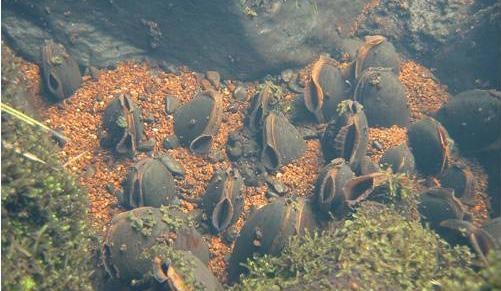
Some Good News Stories!
There have been some improvements in biological water quality within the catchment between the EPAs 2013-2018 monitoring period and 2016-2021 monitoring period.
ALLOW_030, OWENANARE_020, and OWENKEAL_020 returned to high status between the two monitoring periods. When it comes to returning a river to high-status small changes like ensuring cattle cannot access rivers, streams, and ditches can make a big difference.
ALLOW_060 improved from poor to moderate status. This is a step in the right direction, particularly on this important Freshwater Pearl Mussel river (these are extremely pollution sensitive and are threatened with extinction).

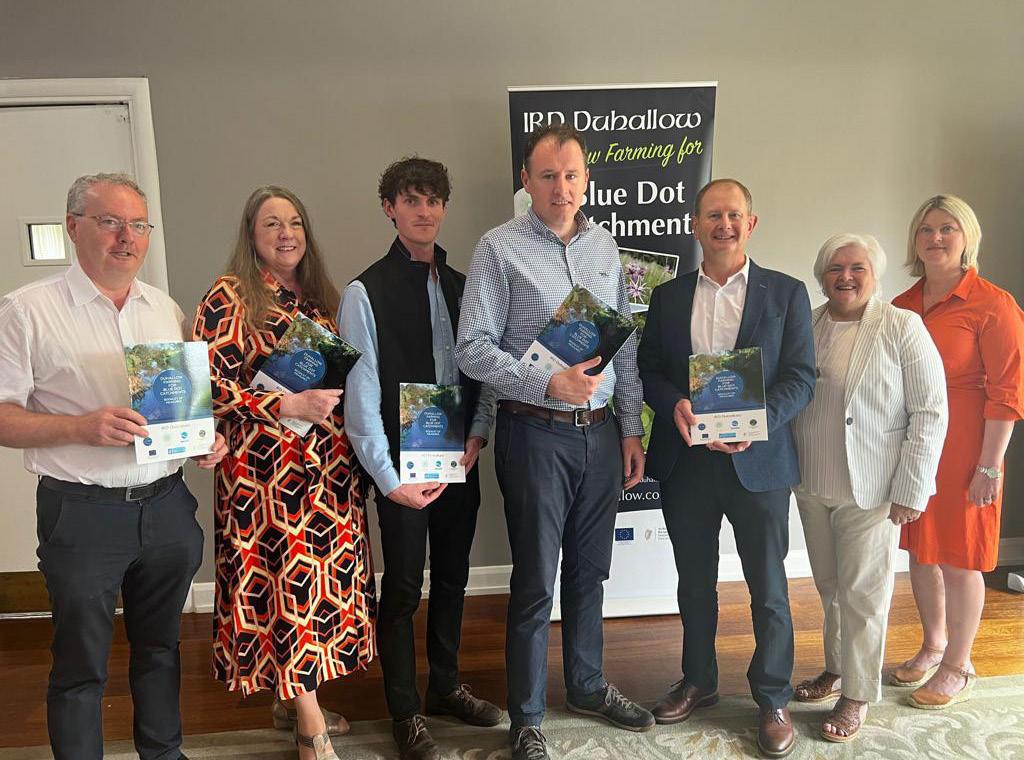
LOGOS
